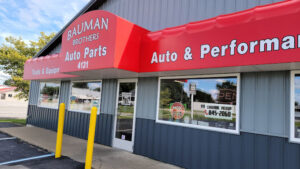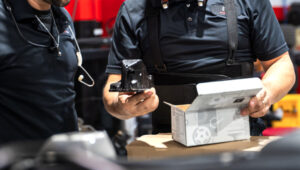There are several things a shop owner can do to improve the chances that the cost of government regulations won’t outpace the ability to run their business
Owning and operating an automotive service and repair shop is now more difficult and expensive than ever. The costs associated with new regulations, license, equipment, and insurance just keep going up.
Fortunately, there are several things a shop owner can do to improve the chances that the cost of government regulations won’t outpace the ability to run their business. It starts with a good compliance score.

Compliance scores are a collection of a shop’s regulatory history. These are similar to a shop’s credit score, which is a snapshot of trust and used to judge whether a shop is financially reputable. The goal for most shops today is to establish a record of both compliance and credit responsibility.
A decent compliance score has many benefits for shop owners, including a better chance for vendor credit; lower worker’s compensation rates; better employee retention; reduced regulatory visits; and lower insurance premiums.
Getting cited or fined for a regulatory slip-up can cause a shop owner’s score to plummet, just like if you miss a mortgage or car payment. You may have a pristine record, but one misstep can put you in a bad spot rather quickly.
One may think credit scores are reserved just for individuals, but service and repair shops are also assigned this very important number. Credit eligibility for auto shops is typically based on the owner’s personal credit score.
Public reports for auto shops nowadays also has government compliance information. Although each reporting agency has its own process for collecting and verifying data, the main data sections are reasonably standard. If a shop has legal judgments or bad credit information, a potential customer may view the shop as a high risk.
Since COVID most permitting agencies now evaluate auto service and repair shops to determine if credentials should be granted based on health and safety standards that govern an applicant’s qualifications, functions, and obligations.
Insurance companies strongly believe that shops with a poor credit history will be less likely to meet regulatory obligations and that they are probably connected. This is illegal in some states — but not all of them — so attaining your permits and paying your bills on time is vital for your reputation.
Every state has a compliance agency responsible for service and repair shops, vehicle dealers, brokers, and rental facilities. In California the shop license or denial status is public information from the Bureau of Auto Repair.
State reporting agencies collect data on thousands of shops and compile the data into a Search by License report. Typical information includes:
- Number of employees, sales, ownership, and subsidiaries.
- Historical data of the shop.
- Shop registration details.
- Government activity summary.
- Number of break and lamp stations and adjusters.
- Auto repair complaints, refunds, rework, and bill adjustments.
- Public records (liens, judgments, and UCC filings)
- Past credit payment history and collections
- Number of employees, sales, ownership and subsidiaries.
- Regulatory compliance history of the shop.
- Shop registration details.
- Government activity summary.
- Shop operational data.
- Industry classification data.
- Vehicle smog check, break check, welder license.
Steven E. Schillinger is an accredited Professional Engineer and often speaks at auto industry meetings about EPA, OSHA and Fire Marshal regulations. He is certified for ANSI/ASHRAE/USGBC/IES Standard 189.1-2014 and works with companies to resolve and remove environmental, health and safety violations.










Comments are closed.